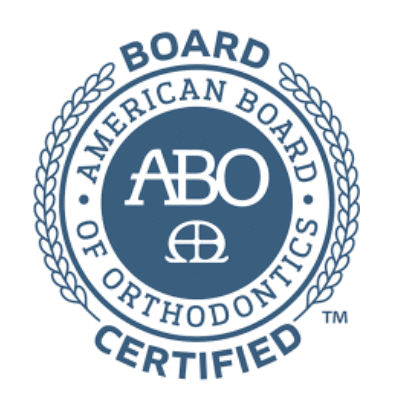Ensuring the dental health of your child is an essential part of their overall well-being. From the moment your little one’s first tooth appears, it becomes crucial to understand when and how to introduce them to a pediatric dentist, the specific role of a pediatric dentist, and how to effectively maintain their dental hygiene.
This FAQs page is dedicated to answering your pressing questions about your child’s dental care—from their first visit to our San Diego, CA office, to how to prevent cavities and everything in between. Contact our office today to learn more!
You should take your child to the dentist when they get their first tooth. The American Academy of Pediatric Dentistry suggests that you take your child to the dentist within six months of their first tooth appearing or by their first birthday, whichever comes first.
Pediatric dentists, like other dental specialists, finish dental school and then pursue further education with several more years of training. While studying pediatric dentistry, they gained a lot of knowledge and experience in treating babies, kids, and teenagers. Our pediatric dentists love working with children and have specialized knowledge in child behavior and development. Our office is designed for children, and our staff, office design, decorations, and activities all work together to create a welcoming and comfortable environment for children.
The first visit will be quick and easy. We will introduce ourselves to your child and give you important information about dental care. We will examine your child’s teeth to make sure they are healthy and in the right place, and we will check their gums and jaw for any issues. We might clean their teeth if needed. We will also answer any questions you have about taking care of your child’s teeth and provide you with materials that have helpful tips you can use at home.
Usually, we suggest going to the dentist every six months. If your child has some dental problems, we may advise more frequent visits.
Even though baby teeth don’t last forever, they are vital for your child’s growth. While they’re in place, they help your child speak, smile, and chew correctly. They also make space in the jaw for permanent teeth. If a baby tooth falls out too soon (because of damage or decay), the teeth around it might move into that area, and this could lead to permanent teeth that are crooked or out of place. Additionally, your child’s overall health is influenced by the health of their teeth and gums.
Before your baby’s first tooth comes in, you can clean their gums with a soft, damp washcloth after they eat. Once the first tooth appears, you can start using a toothbrush. Choose a toothbrush with soft bristles and a small head. You can find a toothbrush made for babies at most drugstores.
After your child gets a few teeth, you can start using a small amount of toothpaste on the brush. Just use a tiny bit of toothpaste with fluoride (about the size of a grain of rice) for each cleaning. Always make sure your child rinses and spits out the toothpaste after brushing. Children might want to swallow toothpaste, but too much fluoride toothpaste can cause teeth to become discolored. You should brush your child’s teeth for them until they can do it themselves, which is usually when they are six or seven years old.
Bacteria in our mouths like to eat sugary foods that stick to our teeth after we eat. The bacteria make acids that attack the outside of our teeth (called enamel) and make holes over time. These holes are called cavities.
Make sure your child brushes his teeth two times a day with fluoride toothpaste. Flossing every day is also important because it can clean places between the teeth that a brush can’t reach. Ask your pediatric dentist about a fluoride supplement, which can help make tooth enamel harder and more resistant to decay. Avoid sugary foods and drinks, limit snacking, and try to keep a healthy diet. And don’t forget to schedule regular appointments with us so we can check your child’s teeth and give them professional cleanings.
Dental sealants can protect your child’s teeth from decay by covering the grooves and crevices that are difficult to clean. We suggest getting sealants, especially on the back molars, which are harder to brush and more prone to cavities. It’s an easy and safe way to help prevent tooth decay.
If your child plays sports, there’s a chance of their teeth getting hit or hurt. To keep them safe, we suggest that your child wears a mouthguard while playing. You can talk to us about getting a custom-made mouthguard that fits your child’s teeth, gums, and lips and provides extra protection.
Most babies suck their thumbs or fingers, and it’s normal. Usually, children stop doing it by the time they turn four years old, and it doesn’t cause any harm to their teeth. However, if your child continues to suck their thumb after their permanent teeth have grown or they suck their thumb very strongly, it’s best to tell us so that we can check if any problems might arise from the habit.
We suggest taking dental x-rays for your child at about two or three years old. The first x-rays will only show the front teeth and are simple to take. Once the back teeth are touching, we recommend getting x-rays once a year. This will help us see if your child’s permanent teeth are coming in properly and if their teeth and jaw are healthy. If your child has a higher risk of dental problems, we may suggest taking x-rays at an earlier age.
Overall, taking care of your child’s dental health is a journey that begins early in life and continues as they grow. Understanding the importance of pediatric dentists, regular visits, and proper oral hygiene practices can help ensure your child’s teeth are healthy and strong. From baby teeth to permanent ones, each stage is critical and demands unique care.
Remember, a healthy mouth can contribute to a healthy life, and starting your child on this path early will provide them with a lifetime of beneficial habits. So, keep up with regular dental visits, maintain good oral hygiene, and always prioritize your child’s dental health. Contact our office if you have additional questions—we’re always happy to help!







